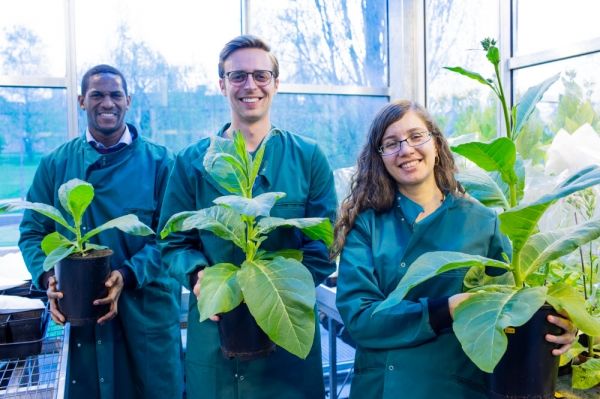To optimize production, scientists from the University of Essex have resolved two major photosynthetic bottlenecks to boost plant productivity by 27 percent in real-world field conditions, according to a new study published in Nature Plants. This is the third breakthrough for the research project Realizing Increased Photosynthetic Efficiency (RIPE); however, this photosynthetic hack has also been shown to conserve water.
“Like a factory line, plants are only as fast as their slowest machines,” said Patricia Lopez-Calcagno, a postdoctoral researcher at Essex, who led this work for the RIPE project. “We have identified some steps that are slower, and what we’re doing is enabling these plants to build more machines to speed up these slower steps in photosynthesis.”
The RIPE project is an international effort led by the University of Illinois to develop more productive crops by improving photosynthesis—the natural, sunlight-powered process that all plants use to fix carbon dioxide into sugars that fuel growth, development, and ultimately yield.
Continue reading at University of Illinois
Image via University of Illinois


